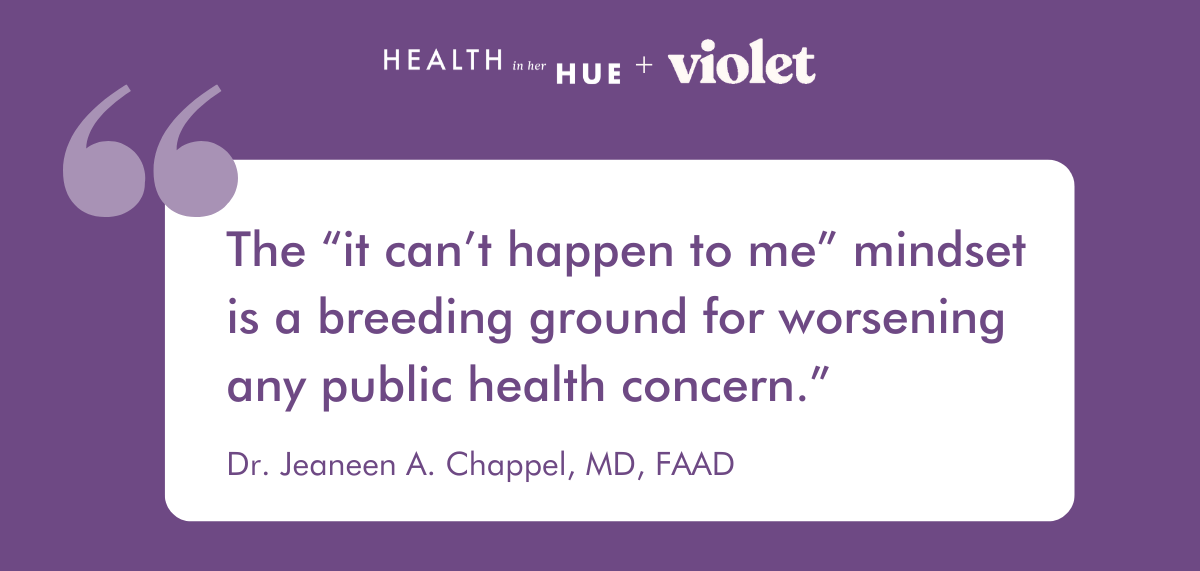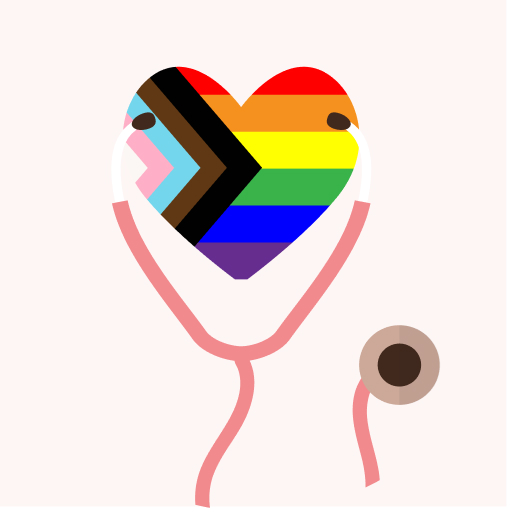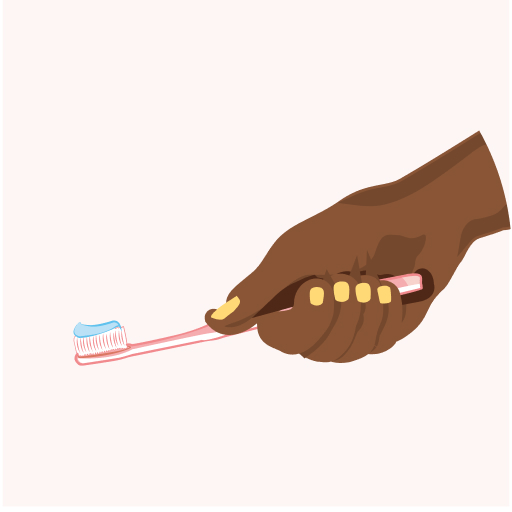
Misinformation and homophobia in the time of monkeypox (MPV)
We’re calling out the disproportionate impact of monkeypox (MPV) on the LGBTQIA+ community. It’s up to our society as a whole to curb MPV, and to proactively do our part not to perpetuate homophobia and misinformation.
According to the Center for Disease Control and Prevention (CDC), as of September 2022, there have been approximately 52,000 confirmed cases of Monkeypox (MPV) globally and approximately 19,000 confirmed cases in the United States and counting.
The current outbreak has been met with a heightened spread of misinformation rooted in discrimination. Even the term “monkeypox” is rife with racist and alienating overtones. It has been noted that “monkeypox’s name conjures tales of illness emerging from the jungled heart of darkness to infect the world, but it likely didn’t originate in monkeys.” The source of MPV may not be monkeys at all as its origins are still unknown.
Violet and Health In Her HUE choose to use the term MPV, and hope others, including your local pharmacy, primary health care office, and testing sites, are already adopting a less sensationalized term too.
Despite MPV feeling like a new phenomenon in 2022, it was originally discovered in 1958 with the first human case of MPV being recorded in 1970. MPV is spread through:
- Touching or close contact including kissing, hugging, sexual activity, etc. with a person infected with MPV’s rash, scabs, or bodily fluids
- Touching or using any fabrics or objects used by someone infected with MPV such as clothing, bedding, eating and drinking utensils
- Vertical transmission, which is exposure to a fetus through the placenta
Although MPV can be spread through sexual activity, it is not classified as a sexually transmitted Infection. According to Dr. Carl Streed Jr., “We need to stop seeing transmissible infections, like MPV, as innate to someone’s identity but rather a result of behaviors and various social and cultural factors that increase the likelihood of transmission.”
A recent study published in the New England Journal of Medicine reported that in a sample of 528 confirmed cases of MPV between April 27 and June 24, 2022, 98% identified as gay or bisexual men. Regardless of this finding, there is still more research that is needed to understand all risk factors for MPV.
It is important to emphasize that MPV can spread to anyone, regardless of sexual orientation and gender identity. MPV has been ignorantly labeled as a “gay” disease. This couldn’t be further from the truth. Experts caution that the public should not mislabel MPV as a Sexually Transmitted Infection (STI) or that it can only be spread within the LGBTQ+ community.
Social determinants impact public health. MPV is no different.
Public health crises are exacerbated by social determinants of health, such as intangible factors like political, socioeconomic, and cultural constructs, including racism and discrimination. Too often, a public health crisis is explained by scapegoating those who are the most underserved in society and could be in poorer health as a consequence. Illness is a factor that alienates vulnerable populations, leaving communities unequipped to weather public health concerns and allowing for viruses to spread when so many turn a blind eye.
LGBTQIA+ people of color are particularly vulnerable to the impacts of homophobia and misinformation because they face some of the worst discrimination in health care settings. In a 2020 national survey conducted by CAP Action, 24% of LGBTQ individuals “reported some form of negative or discriminatory treatment from a doctor or health care provider.” Additionally, racial discrimination is the most commonly reported type of discrimination in health care settings. Patients who live at the intersection of LGBTQIA+ and BIPOC identities can be faced with discrimination in reaction to multiple parts of their identities.
“We’ve learned from [the] HIV/AIDS epidemic that it is important to remember viruses can happen to anyone, irrespective of sexual orientation. Everyone should take the proper steps to avoid exposure and reduce transmission. The ‘it can’t happen to me’ mindset is a breeding ground for worsening any public health concern,” says Dr. Jeaneen A. Chappel, a Health in Her HUE affiliate physician.
As MPV threatens to spread, it is up to clinicians, public health officials, and health care organizations to inform all patients about MPV, regardless of gender or sexual identity. Clinicians must be prepared to uncover biases that may harm their diverse patients in order to properly deliver care to everyone during this crisis and beyond. Since COVID-19 and prior, our society is far too familiar with the harmful impacts of scapegoating a community in the wake of a public health crisis. Acts of homophobia during the height of the HIV/AIDS epidemic are painful memories for many people and there’s fear that the current MPV outbreak could be a repeat of history.
Epidemics worsen health disparities.
In the wake of public health crises, it’s important to address discrimination in order to provide inclusive care, mend trust, and take care of everyone’s health.
Or the cycle continues where culturally diverse communities are oppressed by a lack of privilege, power, and access and it leads to vulnerability when public health crisis strikes and poorer health outcomes.
Words matter.
The spread of misinformation can have a dangerous impact on culturally diverse communities that are already exposed to negative social determinants of health, rooted in racism and discrimination. We must stop spreading homophobia and misinformation just as urgently as we need to curb the spread of MPV. Stopping the spread of MPV and creating an inclusive, equitable society is everyone’s responsibility—let’s start now.
More Content
LGBTQIA+ Health
Let’s Talk About it: Black LGBTQIA+ Health Disparities
In 2021 I had finally gone to...










